calsfoundation@cals.org
Colored Industrial Institute
The Colored Industrial Institute in Pine Bluff (Jefferson County) was one of the first Catholic-supported schools for African-American children in Arkansas. The school was established by Father John Michael Lucey, a white Confederate veteran, who was considered progressive for speaking out against lynching and protesting efforts to pass separate coach legislation.
Planning for the school began in May 1889. Lucey approached leading citizens of Jefferson County to fill the school’s board of directors. This integrated board included wealthy black Pine Bluff citizens, including Ferdinand (Ferd) Havis and Wiley Jones. Jones was also one of three members of the school’s executive committee and served as secretary. The other two executive committee members were Pine Bluff mayor J. W. Bocage and Reverend Lucey.
The Sisters of Charity (from Kentucky) were teaching at Pine Bluff’s Annunciation Academy when they were asked by Rev. Lucey to teach at the Colored Industrial Institute. The mother superior initially sent two sisters for the school’s opening with a promise to send two more shortly.
The Colored Industrial Institute was situated on a city block on State Street between 15th and 16th avenues. Originally, the school consisted of a two-story wooden building that could accommodate 200 students. It opened as a day school accepting girls of all ages and boys up to fourteen years old. Girls were instructed in traditional curricular subjects such as mathematics and literature, as well as sewing, crochet, and vocal music. Boys also studied traditional subjects and woodworking. Father Lucey advertised a possible agricultural program on a working farm for boys, although it is unclear whether the program was ever started. Moral instruction was also stressed, and students attended Catholic mass, but the sisters promised there would be no interference in the students’ “religious principles.” The school opened on September 9, 1889.
The school participated in an exhibit at the 1893 Chicago World’s Fair and earned two medals and two diplomas. By 1894, the school had a three-story brick building and 235 students with six teachers from the Sisters of Charity. With a growing school, Lucey recognized that he needed more assistance and, in 1898, accepted help from the Josephite priests, an order established to evangelize African Americans prior to the Civil War. In a further move to evangelize African Americans, Lucey brought in an African-American order of sisters, the Sisters of the Holy Family, to teach at the school.
In September 1904, the Josephite order sent the Reverend John H. Dorsey to assist the Josephite priest Rev. J. J. Ferdinand with the Colored Industrial Institute and Pine Bluff’s St. Peter’s Church. When the white Ferdinand left abruptly after clashing with Rev. Lucey (now a monsignor), the Colored Industrial Institute became the first school to be run by a black priest (Dorsey) and black nuns. Rev. Dorsey also became the first black American Catholic pastor of a church (St. Peter’s) upon Ferdinand’s departure. Lucey and Dorsey also disagreed over the direction of St. Peter’s Church, with Lucey charging that its membership failed to increase after Dorsey was made pastor.
Eventually, Lucey and Bishop John Morris of the Diocese of Little Rock asked the Josephite fathers to officially remove Father Dorsey in 1909. Soon after Dorsey’s removal, attendance at the Colored Industrial Institute began to drop, and the school was closed by 1913. Eventually, St. Peter’s took over the Colored Industrial Institute buildings and continued operation as St. Peter’s School until closing in 2012 as a result of dwindling enrollment.
For additional information:
Lucey, Rev. James M. The Catholic Church in Arkansas. Little Rock: Little Rock Board of Trade, 1906.
Ochs, Stephen J. Desegregating the Altar: The Josephites and the Struggle for Black Priests, 1871–1960. Baton Rouge: Louisiana State University Press, 1990.
Woods, James M. Mission and Memory: A History of the Catholic Church in Arkansas. Little Rock: Diocese of Little Rock, 1993.
Amanda Paige
Arkansas History Commission
 Education, Elementary and Secondary
Education, Elementary and Secondary Religion
Religion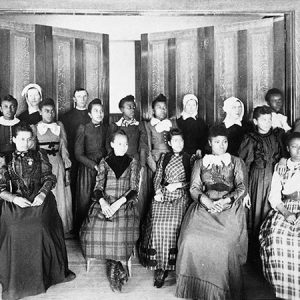 Colored Industrial Institute Students
Colored Industrial Institute Students 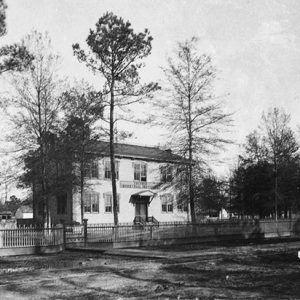 Colored Industrial Institute
Colored Industrial Institute 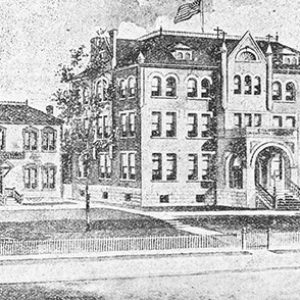 Colored Industrial Institute
Colored Industrial Institute 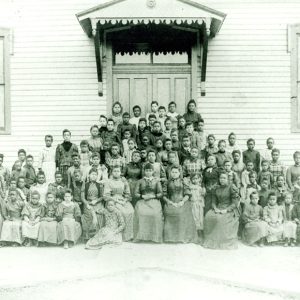 Colored Industrial Institute
Colored Industrial Institute 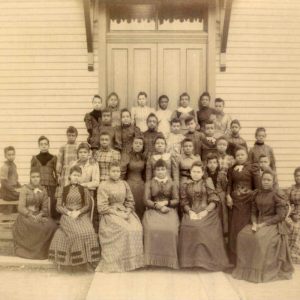 Colored Industrial Institute Students
Colored Industrial Institute Students 




Comments
No comments on this entry yet.